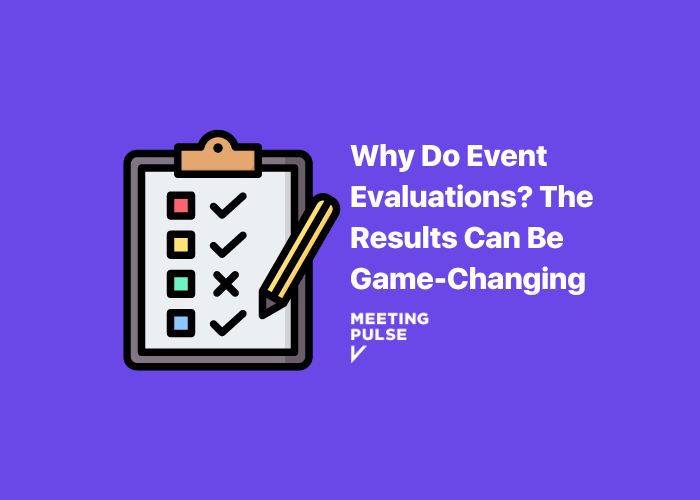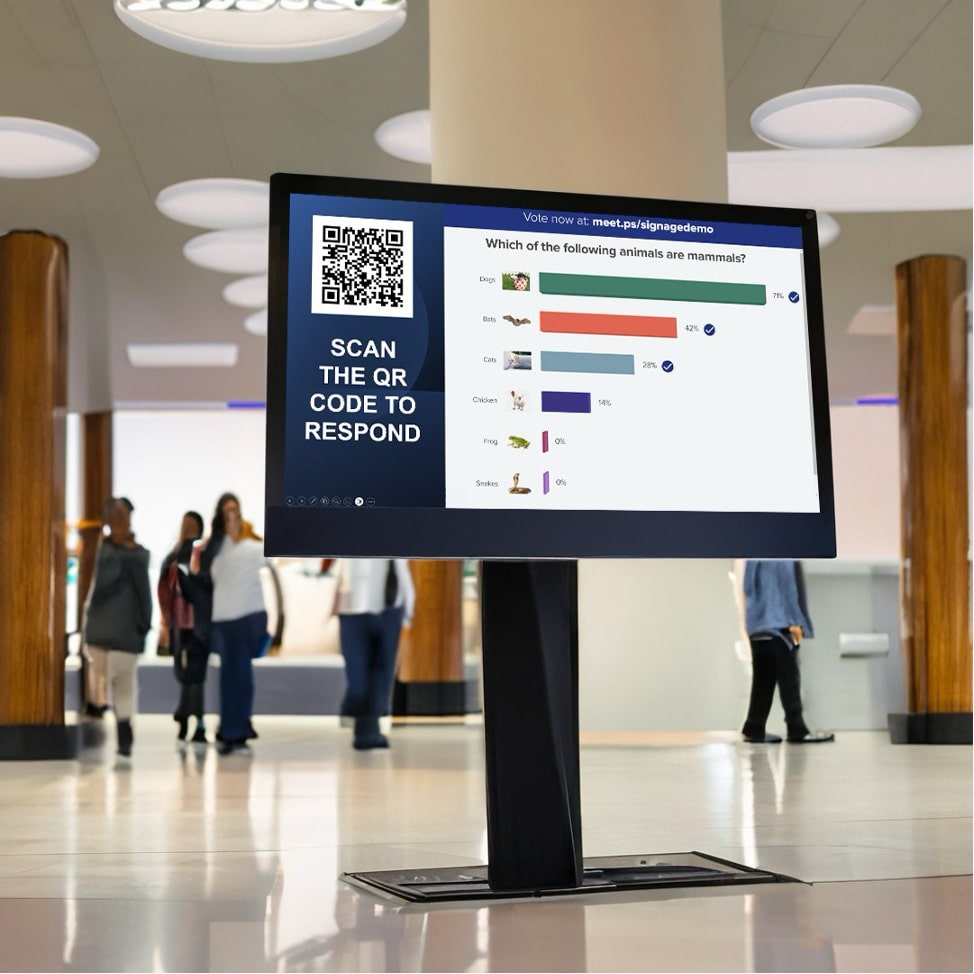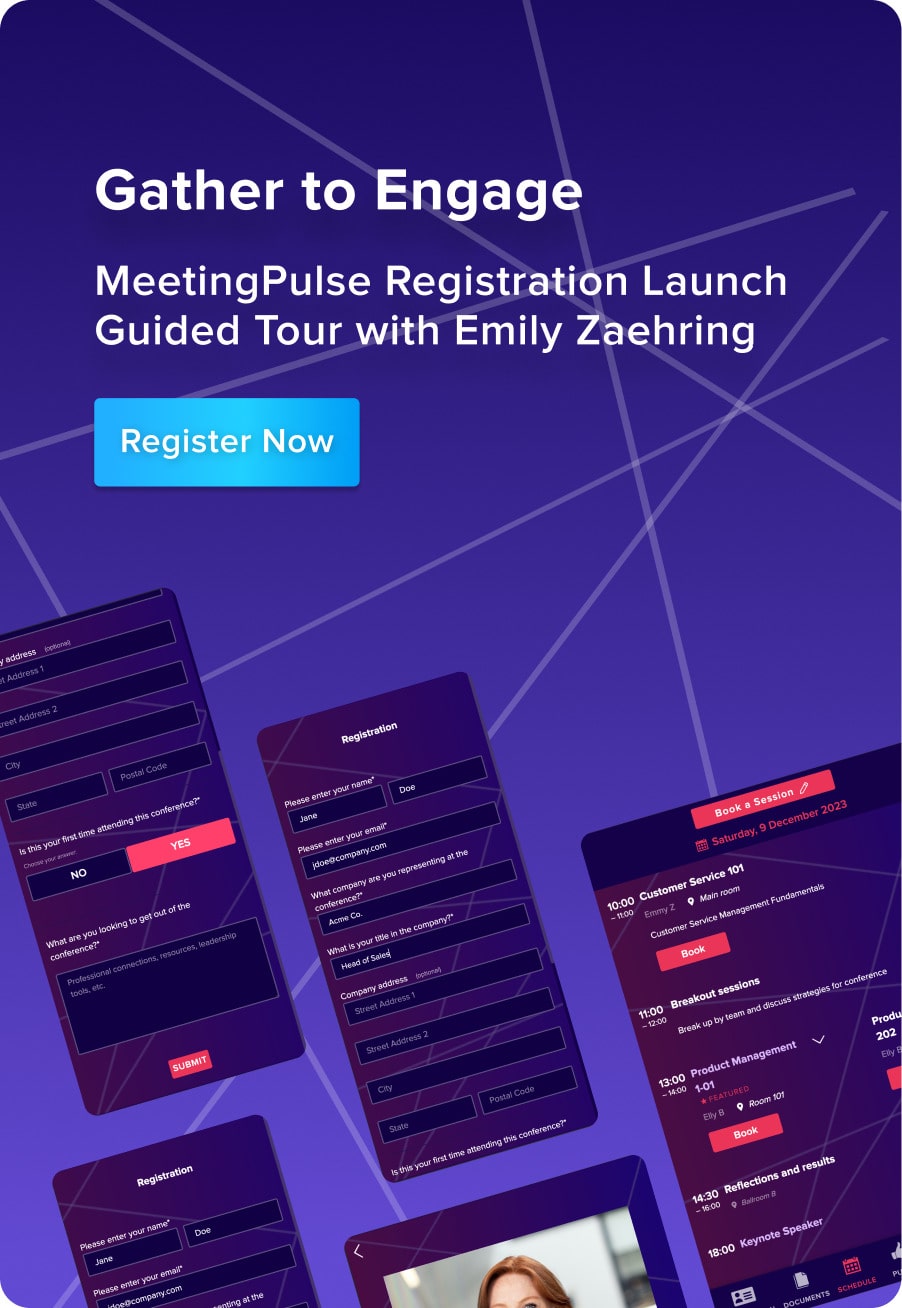For event organizers, it’s hard to beat that feeling of relief after an event has seamlessly wrapped and attendees head for the exits with smiles on their faces. That’s the dream scenario, as it’s generally an indicator of attendee satisfaction and overall event success. But, realistically speaking, sometimes it happens and sometimes it doesn’t. And even if an event planner feels a glimmer of post-event satisfaction, that’s not, unfortunately, a legitimate event evaluation.
That sort of feedback is vague and incomplete. How long will this feeling stick with attendees? Why, exactly, are they satisfied — or perhaps absolutely thrilled? What top take-aways are most likely to benefit them and their businesses long-term? What did you do exceptionally well, or that exceeded expectations? And what could have been better?
What better way to improve your events, or help your presenters improve, than by conducting effective event evaluations?
Why conduct an event evaluation?
These are all important questions, and getting the answers means gathering both quantitative feedback and qualitative feedback. That data will help you understand what went right, what went wrong, and what will generate the buzz you want to hear. Event hosts and others involved in the production can benefit from a realistic view of return on investment, or ROI. It’s why conducting a post-event evaluation is a must in event planning.
Event evaluation is a critical component of event management. Organizing events takes an incredible amount of time, knowledge, and patience. An objective evaluation can help streamline the process of curating events for you and your event team. It’s not just the last step for event planners to take after an event, it’s also the first step to ensuring the success of future events.
Event evaluation helps presenters learn and grow, and gives them information they can use to promote their business. In this article, we’ll look at tools and techniques to help you collect feedback, analyze data, and gain valuable insights.
What should be evaluated after an event?
To decide what to include in a post-event evaluation, first understand the most important part of the process: establishing goals from the outset. This pre-event step helps you choose the key performance indicators, or KPIs, to measure. Creating and prioritizing measurable goals will make it easier to gather event data and assess it.
Think SMART goals — specific, measurable, attainable, relevant, and time-bound. These characteristics can help an event organizer define overall event management goals and develop event objectives.
Return on investment — costs versus leads
Whether you involve sponsors or you host events yourself, digging into the numbers is a good place to start. And by that, we mean do some data analysis to determine if the event reached its intended ROI. To determine this, subtract the event’s total expenses from the gross revenue it generated. Then divide that number by the event’s total expenses.
Another method is costs per lead, which is also simple to measure. To find the figure, divide the event costs by the number of leads your event generated.
Marketing value
It’s easy to see the rewards of event marketing efforts by monitoring social media during and after an event. Just as event organizers can use social media for pre-event promotion, attendees will use it to talk about their experience. Look for any event-related hashtags, brand or company mentions, post tags or media mentions. Engage attendees who took the time to post — it can pay off in the long run.
To develop a net promoter score, or NPS — which measures the likelihood of someone recommending your product or service to others — send post-event surveys. Make them user-friendly by using an event app or other survey tool specifically designed to gather attendee feedback across multiple device types.
Completion of event goals
Remember those SMART goals? Now it’s time to refer to them and see how your event measured up to the results you had in mind. Use the insights gained here as you begin to organize the next event.
Technical issues
Ideally, you had none, nada, zero. But hey, things happen. Virtual events have more potential for glitches than live ones. Review what issues came up and how people responded to your survey questions about technology. Learn from them by figuring out how to avoid or mitigate them going forward.
Registration goals
This is an easy quantitative goal to track. Setting a registration goal is essential, especially if your event is a fundraiser or intended to drive revenue. Did you meet your goal? If you exceeded the goal, kudos! That’s even better!
When is the right time to seek feedback?
Think about the last big event you attended. How much do you remember about it? Chances are, no matter how much you felt you had gained, if more than 14 days have gone by, you’ve forgotten quite a bit. Your attendees will forget yours, too. That’s why collecting feedback quickly, while your event is still top of mind, is essential to your evaluation success.
Present post-event survey questions during the event – or at least within hours of an event’s end to get the most accurate and valuable feedback.
Your post-event survey should be focused and short to entice more people to respond. You can also add incentives like raffles to ensure higher response rates. If possible, carve out a few minutes toward the end of the event to survey attendees. You can also place exit surveys throughout the event to be turned in as attendees leave.
Other options include live surveys during the event, a questionnaire located in the event app, social media polls, email surveys and more.
Who should be surveyed?
The obvious answer here is attendees, but qualitative feedback goes deeper than that. It’s important to consider how every person involved, from behind the scenes to the stage, felt about the event. Including surveys for these specific groups invites a variety of critical perspectives:
- Attendees. Gaining insight from the people for whom the event was planned is a must.
- Volunteers. If you used volunteers to help run your event, curate surveys or other methods of feedback specifically for them. Find out what worked, what didn’t, and what they would change if they could.
- Sponsors. Your sponsors put up funding to help pull off the event, but how did they feel about it once it was over? Ask them. Doing so will help clarify what specific sponsors desire and expect regarding event sponsorship. Use their input to identify ways to strengthen and grow these important relationships.
- Other presenters. If you had guest speakers or other special guests, ask them about their experience. How did it compare to their expectations or experiences elsewhere? Can they share any insight or recommendations to apply in the future? After all, if you want to attract the best and brightest, you’re going to want to know how to keep them coming back.
Who benefits from event evaluation results?
The short answer is every single person involved, but we’ll break it down a little further:
- Individual presenters. Event survey feedback helps presenters understand if their sessions were helpful, or, worst-case scenario, unenjoyable. Event feedback helps them improve for the next time.
- Presenter’s company. If a specific presenter exceeded audience expectations, his or her company should know! That information can add value as they develop marketing materials and other assets which may include content or quotes from the well-loved presenter.
- Sponsors. Sponsors want to know that their money is being spent wisely. Use the data you collect to communicate your wins and highlight the ROI with past, current and prospective sponsors. Did you sell more tickets or generate more leads than you had expected? How much money did you raise for a mutual cause? That’s all good information to share!
- Future attendees. Have you ever seen information about an event, searched the Internet for more about it and come up empty handed? Sharing positive evaluation results on social-media and event-related sites, accounts and apps can help turn the “interested” into “going.”
How to conduct good event evaluations
Survey tools make the job easy, and options abound. Some are more comprehensive than others, so start comparing, based on your event management needs. For instance, MeetingPulse provides an event platform featuring built-in event survey tools, including post-event surveys. Essentially it’s a well-designed one-stop shop for event-related needs and guidance. Other tools to consider include:
- GoogleForms. Use this as a survey tool created in your web browser, without the need for additional software. You’ll receive survey results as soon as they’re submitted. Results can be summarized with graphs and charts.
- SurveyMonkey. With this cloud-based tool, easily create, send, and analyze surveys. They can be sent by email or posted to websites and social media pages
- Typeform. Access templates to create more than 20 types of surveys to share with respondents and collect post-event feedback.
By leveraging the right tools and techniques, event and meeting planners succeed in boosting participant and sponsor engagement, delivering valuable content to their target audience, and creating legendary win-win strategies. Learn what MeetingPulse has to share with you.





















